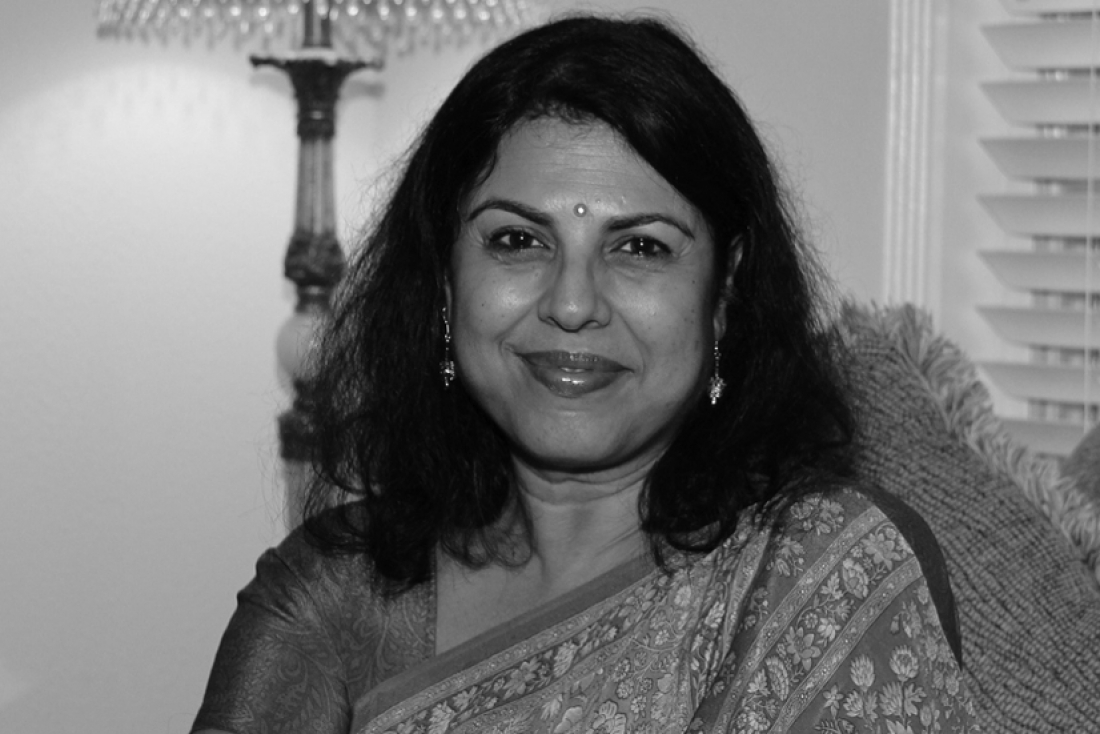

Chitra Banerjee Divakaruni is a storyteller who enlightens your mind and feeds it with knowledge. Be it her book of short stories, Arranged Marriage, or the path-breaking Palace of Illusions that is celebrating its tenth anniversary, her writing is fuelled by her own experiences as a first-generation immigrant and a woman between cultures and traditions. Her stories are relatable and touch a nerve. Her new book, The Forest of Enchantments, is a brilliant retelling of The Ramayana, where Chitra places Sita at the centre of the novel.
She has always written strong female characters so beautifully and continues to challenge herself with different forms. Even though her stories have an Indian context, her reach is global. Growing up, she never thought she would be a writer; however, she was a voracious reader. After moving to the United States, it became imperative for her to write. She started writing so she could not forget her heritage, her culture and her growing up years that were spent in India. She continued to write so she could make sense of immigrant life, which came as a big shock. Hailing from a very traditional Bengali family, she found herself in the US all by herself at a time when there was not such a large Indian community so there she was amongst all these “foreign people”, trying to make sense of all of that and that’s how writing became her outlet and turned out therapeutic.
Most of your books have women protagonists—what intrigues you to create women characters time and again as it’s challenging at many levels and has its pros and cons?
Female voices are very important for me philosophically. For many years now, I have been involved with women’s issues and women activism. I work with battered women. I work with trafficking and so it’s very important for me to put the woman in the centre of my novel. Also as a reader, I noticed that for centuries, women were not the main protagonists. So for me it’s very important to base my central character around a woman, to show the multitudinous avatars of a woman—how they react, how they take up challenges, how they fall, how they rise—I want to make that the centre of the story. There are men and I hope I write them well, but my focus and my heart is with the women and I hope both men and women are reading these books because it’s very important for men to read books and understand women.
“According to me, a successful woman is one who can take chances with her life and if she falls, she has the courage to stand up again.”
According to you, who or what makes for a successful woman?
According to me, a successful woman is one who can take chances with her life and if she falls, she has the courage to stand up again.
How much of your own reality is weaved into your stories?
In Before we visit the Goddess, geographical reality is taken from my own reality as each of the three places these women live in have been lived by me. For me, a city becomes a character so it’s very important to understand and experience the city, as a place affects people and people affect spaces. So I like to write about places I am familiar with and that I understand the vibe of.
“For me, a city becomes a character so it’s very important to understand and experience the city, as a place affects people and people affect spaces.”
With each book you like to challenge yourself—with BWVTG you have used a structure that somewhat combines short stories and novels. How did you decide on this format and how exciting was it to experiment?
With this book, I experimented with a form that I have not used before, which is novel-in-stories. It was very exciting as I wanted to write a three-generation story but I did not want the same old 800-pages long saga. I wanted to focus on resonant moments and connect those moments. And I wanted the reader to experience the three distinct voices, the three different characters; so I thought this format would work best. I also wanted the reader to be surprised and to look forward to whose voice would come in the chapter following.
How do you define spirituality and what role does it play in your novels?
Spirituality plays a very important role in my life. All of my books have that spiritual core, as it’s so central to life. But I want spirituality to be something human and deep, and not necessarily traditional or conventional. So it’s not always based around religion—my books look at life with a larger worldview.
Text Shruti Kapur Malhotra